Min Cho: Blood Cell Research Grows Personal
Min Cho’s work in a UCSF lab that researches protein translational mechanisms in blood cancers was just an abstract, albeit important, concept to him – until he was diagnosed with a rare blood disease.

University of California San Francisco
Give to UCSFMin Cho’s work in a UCSF lab that researches protein translational mechanisms in blood cancers was just an abstract, albeit important, concept to him – until he was diagnosed with a rare blood disease.

Marvel at the complexities of the move to UCSF’s new medical center.
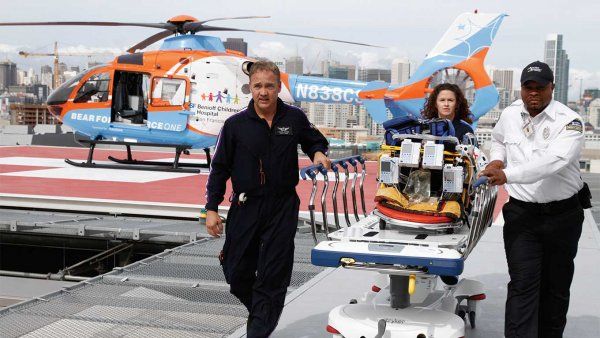
A UCSF study shows that as smoking has declined, continuing smokers have smoked less and are more likely to try to quit.

A team of UC San Francisco and Stanford University scientists has discovered that a protein thought to be crucial for the body to develop and function correctly can be reduced by half in mice with no apparent ill effects.

UC San Francisco scientists have identified characteristics of a family of daughter cells, called MPPs, which are the first to arise from stem cells within bone marrow that generate the entire blood system.

Oncologists are treating the immune system instead of tumors to fight cancer – with startling results.
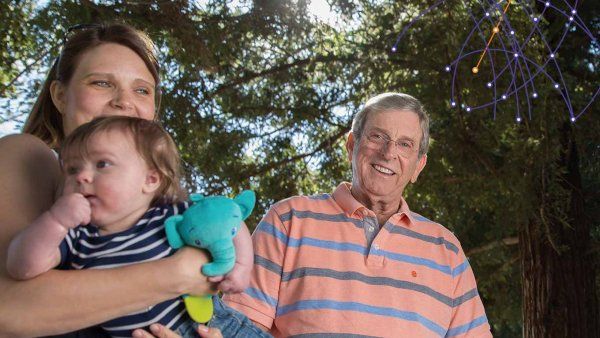
Alan Ashworth, PhD, one of the world’s preeminent cancer scientists and new president of UCSF’s cancer center, shares his vision for tackling the disease.
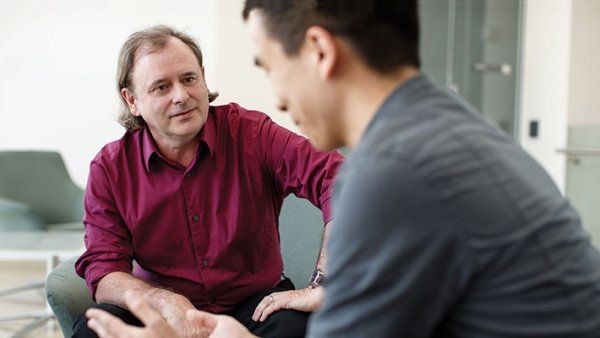
Men with an elevated, genetically inherited risk for prostate cancer could be routinely identified with a simple blood or urine test, potentially paving the way to better or earlier diagnosis.

A team of scientists has shown that using just three molecular markers will help clinicians classify gliomas – the most common type of malignant brain tumors – more accurately than current methods.

UCSF Benioff Children’s Hospitals is among the nation's premier children’s hospitals in nine pediatric specialties, according to the 2015-2016 U.S. Best Children’s Hospitals rankings conducted by the U.S. News Media Group.

UCSF's Alan Ashworth, PhD, has received an award from a cancer nonprofit organization for his “significant contributions to research, advocacy, clinical care, education, awareness, or support of hereditary cancer.”

A new study led by UCSF has found that women with dense breasts may need only routine mammograms unless they are at high risk.
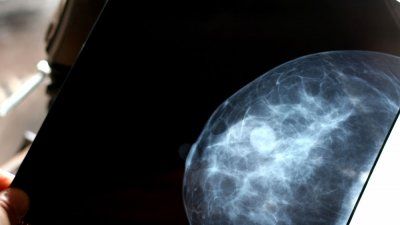
A team led by UCSF researchers has discovered how a commonly administered vaccine protects against acute lymphoblastic leukemia, the most common type of childhood cancer.

An online smoking cessation program that offered personalized guidance and support free of charge to smokers worldwide prompted thousands to quit, and should be used as a blueprint for other global health initiatives, according to Ricardo F. Muñoz, PhD, professor emeritus of psychiatry at UCSF

As Program Manager for the Cancer Resource Center, Naomi Hoffer is deeply embedded in the world of cancer supportive care. Their team continually assesses new pathways to sustained healing and whole-person support.

Rena Pasick leads the Minority Training Program in Cancer Control Research (MTPCCR) with sites at UCSF and UCLA. Her program encourages and supports underrepresented master’s level students in public health and social and behavioral sciences on to the doctorate and careers in research.
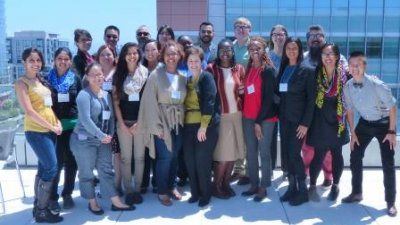
A team led by UCSF scientists has discovered a possible reason why angiogenesis inhibitors often work in the short term but usually become ineffective within months, one that could lead to a way to prevent cancer relapse.

UCSF scientists have identified a biological escape hatch that explains the resistance to targeted drug treatment in some lung cancer patients.

A research team at UCSF has won a five-year award of $14.1 million from the Patient-Centered Outcomes Research Institute to investigate whether a personalized approach to breast cancer screening is as safe and effective as annual mammograms.

A new study of acute lymphoblastic leukemia led by UCSF researchers puts an intriguing new twist on anti-cancer strategies.

UCSF Chancellor and Professor Emeritus J. Michael Bishop, MD, Professor Emeritus Harold Varmus, MD, and Chancellor and Professor Emeritus Susan Desmond-Hellmann, MD, MPH, will be highlighted for their pioneering work on cancer in the Ken Burns-produced PBS documentary series “Cancer: The Emperor of All Maladies,” which airs March 30-April 1, 2015.

A new study of acute lymphoblastic leukemia has revealed that the disease has two distinct subtypes, and provides preliminary evidence that about 13 percent of cases may be successfully treated with targeted drugs.

New research finds a special protein may control the survival of deep, near-dormant cancer cells that allow tumors to regrow even after other cells have been eradicated.

Retired UC San Francisco cancer researcher Lois Barth Epstein, MD, DSc, died on Feb. 6, after a brief illness. She was 81. Epstein was a leading contributor in the field of cancer research, a skilled artist, and an active member of the San Francisco Bay Area community.

A protein called YAP, which drives the growth of organs during development and regulates their size in adulthood, plays a key role in the emergence of resistance to targeted cancer therapies, according to a new study.

Alan Ashworth, one of the world's preeminent cancer scientists, recently began his new role as the director of the UCSF Helen Diller Family Comprehensive Cancer Center.

The UCSF community is deeply saddened to learn of the passing of Helen Diller, who was a longtime champion of UCSF, in particular through her family foundation’s support of the UCSF Helen Diller Family Comprehensive Cancer Center.

With advances in technology and better understanding of people, the health sciences are constantly pushing toward more effective treatments and cures. The question is, where will we see the next breakthroughs in 2015?

More than 1,000 employees who are scheduled to work at the new UCSF Medical Center at Mission Bay were treated to a special employees-only event on Dec. 3.

The idea of art as medicine dates back to antiquity, but recently the concept is drawing increasing interest from the medical and science communities.
